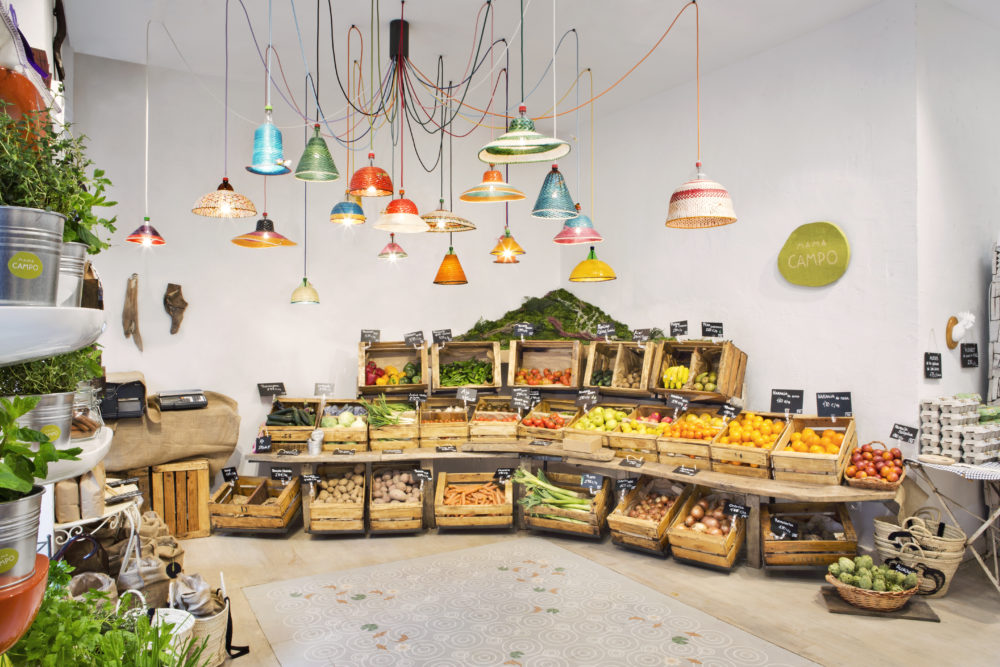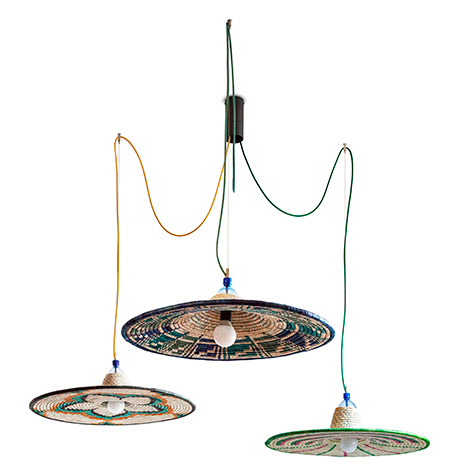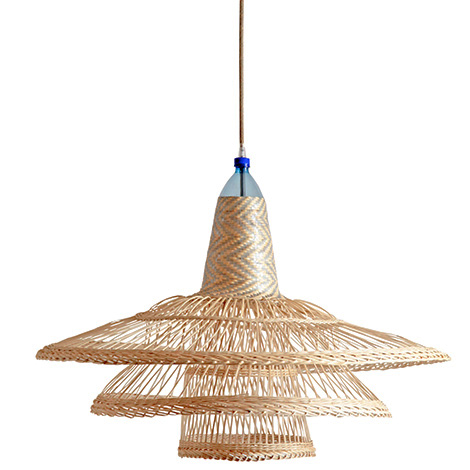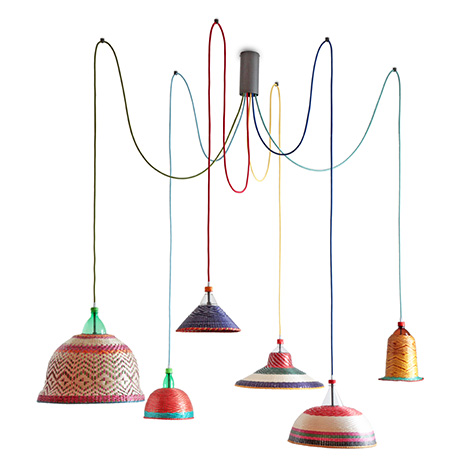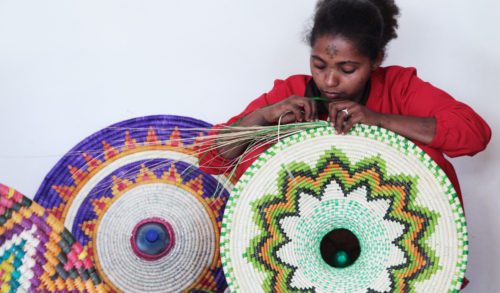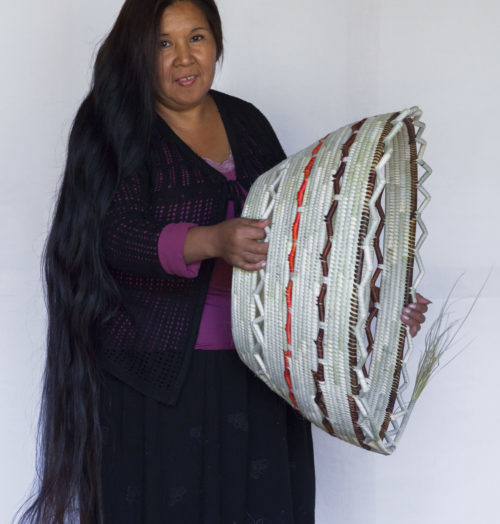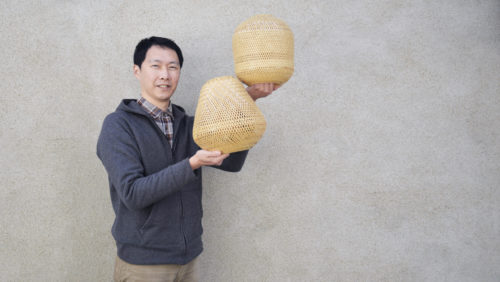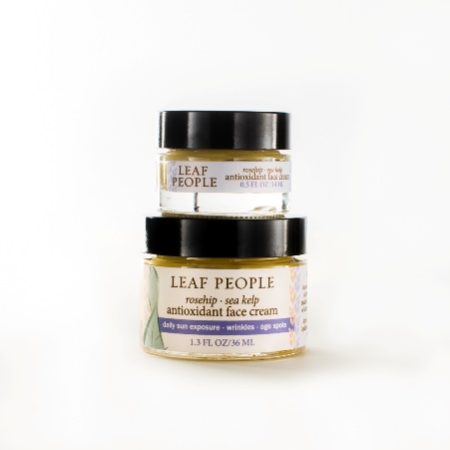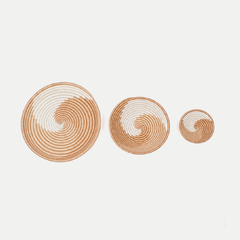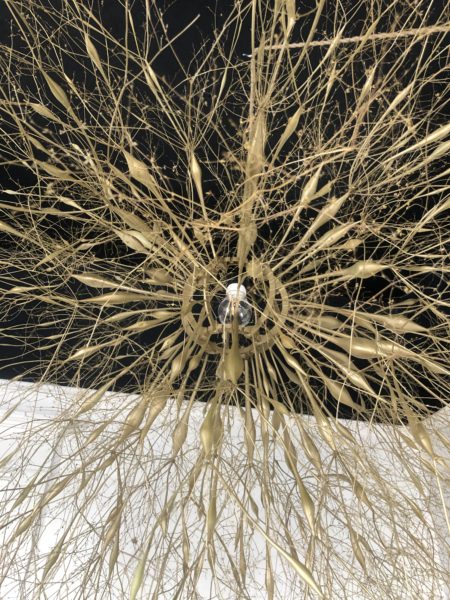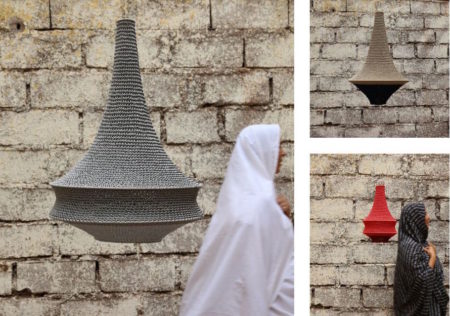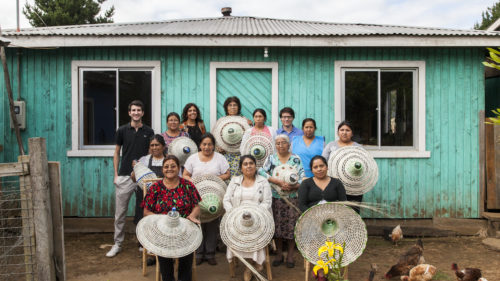 Back in 2011, Alvaro Catalan de Ocon took part in a project focused on the reuse of PET plastic bottles as a way of addressing the plastic waste issue that was happening in the Colombian Amazon. As an industrial designer, his starting point was focusing on the deep contradiction that is hidden behind each PET bottle: a product with a very short lifespan that takes decades to decompose. Alvaro reconsidered the role of the plastic bottle by merging local weaving techniques with industrial lighting. At this moment, PET Lamp is a consolidated project in different communities of artisans worldwide, which enables tradition and local culture cosmogony to be reflected in the final product.
Back in 2011, Alvaro Catalan de Ocon took part in a project focused on the reuse of PET plastic bottles as a way of addressing the plastic waste issue that was happening in the Colombian Amazon. As an industrial designer, his starting point was focusing on the deep contradiction that is hidden behind each PET bottle: a product with a very short lifespan that takes decades to decompose. Alvaro reconsidered the role of the plastic bottle by merging local weaving techniques with industrial lighting. At this moment, PET Lamp is a consolidated project in different communities of artisans worldwide, which enables tradition and local culture cosmogony to be reflected in the final product.
The PET Lamp started as an awareness project, strongly linked to the PET bottle reuse. Over time it unfolded also as an anthropological study of different indigenous weaving traditions, underlining the role that craft knowledge can play in local culture, and accentuating preservation of craft knowledge and tradition.
The PET Lamp project was initially founded in 2012 through a collaboration with artisans from the Cauca region that had been displaced by the guerrilla war in Colombia. The lampshades created by these artisans reflect the community character and their culture symbolism, proving the viability of the project. PET Lamp company is born the same year and the collection EPERARA-SIAPIDARA is exhibited for the first time at the Salone Internazionale del Mobile Milan in 2013, raising interest among international media, which allowed PET Lamp to approach publics from all corners of the world.
In 2014 the collection CHIMBARONGO (Chile), produced by wicker craftspeople, is launched and displayed at the Salone Internazionale del Mobile Milano, within Rossana Orlandi exhibition.
In 2015 the project reached Ethiopia, a country with a rich weaving tradition, which is still passed from one generation to another. ABYSSINIA collection is conceived by women artisans from Addis Abeba place and then released to the public the same year.
Few months later, PET Lamp travels to Kyoto, Japan, where Japanese artisans’ perfectionism and thoroughness merge with the flexibility and fragility of bamboo material.
In 2006, PET Lamp has organized a new workshop in Chile, in the Araucania region, together with the Mapuche ethnic group. It is a stigmatized area, affected by local conflicts and experiencing an ongoing integration process. The artisans, who employ centenary weaving techniques in order to handle and use ñocha natural fiber, put all their passion to create MAPUCHE collection, exhibited at the Cultural Center Palacio de la Moneda of the Chilean Government.
PET Lamp has achieved a global approach including communities of artisans and satellite collaborators in different continents. PET Lamp does not only create an appealing and contemporary product, but it puts at the heart of the project the artisans’ creativity who reflect their identity and symbolism in every single piece. The lampshades are unique, serialized and printed with history objects.
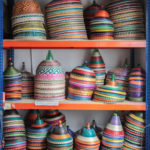 With headquarters in Madrid, Pet Lamp offers a customized selection of lamps and the possibility to receive a wide range of options according to your preferences.
With headquarters in Madrid, Pet Lamp offers a customized selection of lamps and the possibility to receive a wide range of options according to your preferences.
